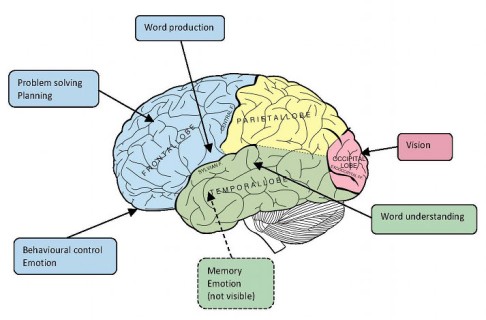I am sure the majority of us have heard someone say “she/he was born with no common sense”
As psychology students we have been set the task of constructing our own Blog and looking at a subject which interests us. We have to research and come up
with evidence to support our theory. I have chosen “common sense.”
The aim to this Blog is to look at common sense and see if it is something we are born with or something we can learn. I plan to argue the hypothesis “that humans, against what we are told aren’t born with common sense that we learn it and can learn it at any age.” I will gather information and post it in the hope that it will support my theory.
To be able to do this we will first have to look at common sense and try to define it, most people have heard of it and know if they have it or not, but do we all really know what it is? If one is to type common sense into Google you can be overwhelmed with the amount off responses, different sights will tell you different things but as this is my personal Blog I will give you what I think best describes common sense.
For me the best definition is the Merriam -Webster definition “common sense is sound and prudent judgement based on a simple perception of the situation or facts” So there you have it, common sense is simple, right? We should all be able to look at something and know if its right or wrong, clever or smart! The problem is that we don’t. Really common sense is such a simple tool for humans to have, considering we can do exceptional things, like put a man on the moon, build planes etc. Something as silly as crossing the road shouldn’t leave us with a problem. Yet time and time again humans do the most stupidest of things not having thought the problem or situation through. They say common sense is paying attention to the obvious, well if something is obvious why can it seem so far out of grasp? And why time and time again do we repeat our mistakes?
Common sense against popular belief is not something you are born with, it is something you learn as you grow up (according to most scientific research,some of which we will look at in the coming weeks) it can come down to a nature nurture situation e.g. if your not taught something you cant possibly know its wrong or right, You wouldn’t put your hand in a fire, common sense tells us that would hurt and would be a stupid thing to do, but if nobody had ever told you that fire can hurt or if you hadn’t done it once and experienced the pain how can you possibly know?
It can come down to situational/social differences as well, again common sense tells us we shouldn’t walk out on a motorway full of speeding cars without looking left/right to check its clear but if your from a remote rural area you would never have had a need to learn such things and therefore may step out on the road without having thought twice about it. It doesn’t make you stupid, you just never learnt that particular bit of knowledge. On the flip side a born and bred city person may not know that you don’t walk up to a bull in a field to pet it, Where as most country people would see this as pure common sense. So common sense is not a set form of rules or understanding, what is common sense to one may not be common sense to another. So it comes down to knowledge, the more knowledge one has the more common sense one has. Added to this it would make sense that the more sociable you are, so as to say the more social interactions one has the more knowledge one can gather, and the more knowledge one has the more decisions become a matter of pure common sense. So the question I suppose changes slightly to whether everyone has the capacity to learn/gather knowledge and therefore obtain common sense?
But having said all of the above and despite what we think of common sense and how we define it. Science hasn’t been able to really define or explain common sense and its development. In the past, however, scientists observed that patients who underwent prefrontal lobotomies were able to return home and resume their normal lives, except that they lacked proper judgement. This could indicate that the prefrontal region of the brain is somewhat connected to our decision-making process and common sense response. [According to the geographical channel website] So does this mean that maybe we are born with it? If common sense comes down to brain development are we still able to learn it?
Then there is the emotional aspect, its common to hear “oh she is emotional, no common sense at all” is this true? Well studies suggest it could be. The region of the brain that controls ones emotions does in-fact work slightly faster than the region of the brain that controls decision making so therefore could explain why some people make rash and seemingly stupid judgements.
I am sure I have come up with more questions than I have answered and over the next few weeks I hope to answer the majority of them and convince you that common sense is not something we are born with, it is something we learn and can continue to learn throughout our lives, which I would hope therefore means anyone, theoretically could learn it at ANY stage in their life. I will look at the statements I have made above and try to find various forms of research to suggest they may be right.
I will leave you with a joke that always makes me laugh, and is a prime example of someone who didn’t think to use their common sense.
A man is driving down a road that passes a mental hospital. He hears a loud noise, and his car lurches. He realizes that he’s had a blow-out. He pulls over to the side of the road, and sure enough, he has a flat tire. He gets the spare out of the trunk and begins to change the tire. He jacks up the car, removes the wheel with the flat tire, and to prevent the lug nuts from getting lost, he carefully places them in the hubcap. So far, so good. But, as he is installing the spare, he bumps his foot against the hubcap, which sends the lug nuts rolling. Oh, no: all four of the lug nuts fall through the grate of a storm sewer. The man curses out loud, and hollers
“What am I gonna do now?”
A soft voice comes from the other side of a nearby fence. The voice says
“You can take one lug nut off each of your other 3 wheels, and put them on the spare. That will give you three on each wheel, which will hold your wheels on well enough for you to get to the service station down the road.”
The driver walks over to the fence, sees the sign that says “State Mental Hospital,” and says to the guy on the other side of the fence:
“Hey, that’s very smart thinking. So how come you’re in a place like this?”
The mental patient smiles, shrugs, and says “Sir, I’m in here ‘cuz I’m crazy, not ‘cuz I’m stupid.”

